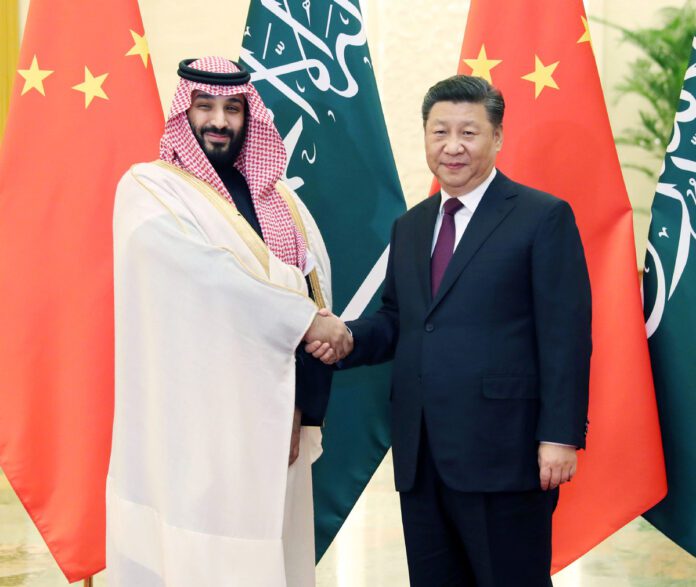What a landmark a defining visit for China and Saudi Arabia – during President Xi Jinping’s rare visit to Riyadh, both countries signed investment deals worth $34 billion. Their bilateral trade has already crossed $ 80 billion. And the warm send-off Prince Mohammad bin Salman gave to President XI after three days was equally worth-watching and probably reflected a new beginning. It also bespoke the mutual vows to take the relationship to new levels. This unusual warmth evoked several eyebrows in the western political quarters and evoked riveting responses.
“Time will tell, but judging from the cold and humiliating reception of Biden, and the extremely warm reception of China, the US is no longer a close Saudi ally,” said the above Twitter handle.
The deals in Saudi Arabia take Chinese investments in Saudi Arabia, UAE, Kuwait, and Qatar to a staggering $ 95 billion in the last few years, with a promise of a massive uptick in bilateral trade as Arab rulers hunt for new investment opportunities at home and eastwards.
The push for investments and trade connectivity through the Belt and Road Initiative (BRI) sharply contrasts with the billions of dollars these countries have dished out to the US and leading NATO nations for arms purchases.
In August 2022, for instance, State Department approved a $3 billion sale of Patriot missiles to Saudi Arabia and $2.2 billion to the United Arab Emirates. It is contrary to what Biden had promised in the 2019 election campaign, i.e., to make Saudi Arabia a pariah.
Earlier on May 20, 2017, President Trump and Prince Salman bin Abdul Aziz signed a series of letters of intent for the Kingdom of Saudi Arabia to purchase from the United States totaling US$110 billion immediately and $350 billion over ten years. It was a geopolitically driven move that underscored the two countries’ old alliance.
Beijing, on the contrary, has pursued geo-economics through the BRI – making it a harbinger of change through trade, economic cooperation, and investment.
The nearly 4,000-word joint statement issued at end of Xi’s visit also delivers a glimpse into the ever-expanding economic relationship.
In the statement, both Riyadh and Beijing underlined “the importance of stability in the world oil markets, adding that “Saudi Arabia is a reliable exporter of crude oil to its Chinese partner. They also expressed determination to “develop cooperation and coordination in defense fields,” and continue cooperating on “combating terrorism and its financing.”
It also affirmed that the countries will “continue to firmly support each other’s core interests, support each other in maintaining their sovereignty and territorial integrity, and exert joint efforts to defend the principle of non-interference in the internal affairs of states, rules of international law and basic principles of international relations.”
Interestingly, both also undertook not to criticize each other for their internal policies, presumably including issues on human rights and domestic rule.
China also affirmed its “opposition to any actions that would interfere in the internal affairs of the Kingdom of Saudi Arabia,” without adding more details.
President Xi’s latest Saudi visit underlines a new evolving reality; countries in Asia and Africa are repositioning themselves for peaceful political relationships independent of strings. They also discern the push for greater geo-economic relations, which in the Chinese lingo amounts to a win-win for all stakeholders.




